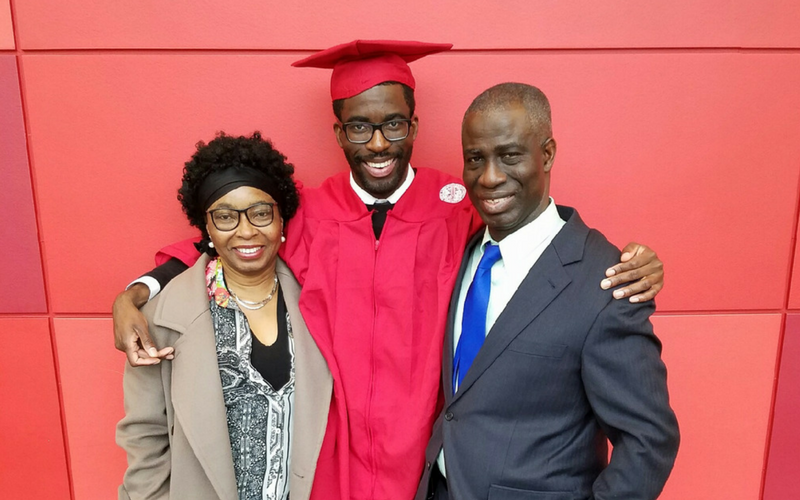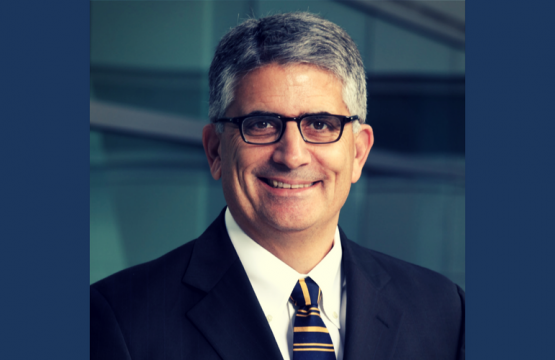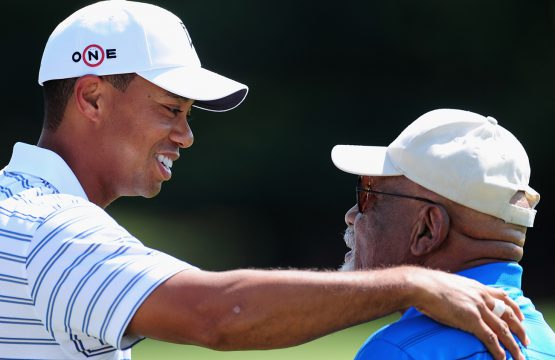Scholar Voices: On being a black physicist
In this month’s Scholar Voices series, we celebrate Black History Month. Today, we hear from our brilliant and ever ambitious Earl Woods Scholar and recent North Carolina State University graduate Yani Udiani. With a bachelor’s degree in physics and upcoming plans to begin his Ph.D. program, Yani speaks candidly about blazing a trail for fellow African-American physicists.
Reflecting on the past four and a half years of my life, I often find myself in disbelief. I just graduated from North Carolina State University, and have earned my badge of “adulthood.” I now have the luxury of reflecting on my journey in the clearest mind. Studying physics, I often faced problems that seemed insurmountable. My hardest moment in college was when I constantly doubted myself, and all too often watched my doubts come to fruition. In physics talk, my state became localized in a potential well. To escape that well, I needed to learn about my drive for doing this, and in doing so, learned about myself. In reflecting on my journey, I realize that I am privileged to have obtained higher learning because of the actions of many people.
Junior year is commonly known as the “death year” for college students. It certainly was for me. My classes and responsibilities became very difficult. I lost my engagement with my studies, and unfortunately, lost my creativity. I consider this period to be my hardest, not because of difficulties, but rather because of my response to those difficulties. I questioned my ability of becoming a physicist. I repeatedly questioned myself because I failed to understand the nature of creativity and hard work. I had to re-evaluate just how much heart and effort I had to put forth to reach my goals. In doing so, I realized just how much physics means to me.
I loved how outlandish it was, and how it forced me to feel and think in ways that I’d never explored. One glance at the Hubble Deep Field, or the equation that governs non-relativistic quantum particles (Schrodinger’s equation) should illustrate this. For this reason, I always found physics difficult, and yet lovable. I made it an effort to work as hard as I could to learn as much as possible. In doing so, I found a happiness, or rather a deep satisfaction. With the satisfaction of watching myself grow, I found myself creative, curious and engaging in unprecedented ways. I believe that we all have a yearning for something that calls us to be our very best. I found mine.
College was a journey to learn not only about physics, but also myself. In reflecting on my existential problems, I realize that I was allowed to have such problems because of actions taken by people before me. Without my family and the Tiger Woods Foundation funding my education, I would not have the ability to receive higher learning. I would not have the joy of struggling to solve deep problems that enable me to learn about myself and the universe.

There was an unfortunate time in many areas of this country where people of African origin were unable to receive basic — let alone higher — education out of fear that they would challenge the status quo. Even post-abolition, African-Americans were segregated, and denied positions in academia purely because of the color of their skin. Dr. Percy Julian, known as the progenitor of the mass production of progesterone and cortisone, suffered racial discrimination despite his many achievements. Similar scientists, such as Dr. Edward Bouchet and Dr. Elmer Imes, respectively, the first and second African-Americans to earn Ph.Ds. in physics, experienced such discrimination. We do best not to forget the many civil rights activists of all races who fought against segregation and discrimination. Despite the challenges these individuals faced, they succeeded in their respective fields. As a country, we have walked through difficult periods for people to gain basic rights.
I stand here on the landscape of knowledge because people fought and dreamed for future generations. I stand here as an educated black man. I am proud not because I have a degree, but because I understand the challenges that not only I have faced, but many others known and unknown have overcome for me to graduate from a predominately white institution in a field where few African-Americans are present. I understand that my role is to pave the way for future minorities in science by using the things I have learned in my journey. And that is exactly what I plan to do. I will continue to pave the way when I attend graduate school in the fall for my Ph.D. in physics.
Redefining what it means to be a champion.


